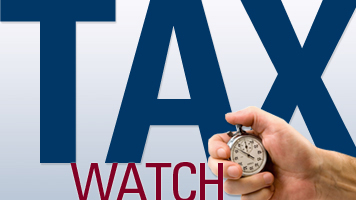
Manufacturing companies testified before the House Ways and Means Committee that they support lowering corporate tax rates in exchange for broadening the tax base and eliminating incentives.
Manufacturers Say They Would Trade Tax Incentives for Lower Rates
Company officials from large and small U.S. manufacturers testified before the House Ways and Means Committee on July 19 that they support lowering corporate tax rates in exchange for broadening the tax base and eliminating incentives. Such tax reform is necessary to help the U.S. manufacturing industry, which has lost 590,000 jobs since 2009, said Chairman Dave Camp, R-Mich.
"The bottom line is that today’s tax code is not working," he said.
The hearing, held to assess the impact of comprehensive tax reform legislation on domestic and foreign-owned U.S. manufacturers, came just a week before House lawmakers expect to begin consideration of a targeted GOP bill to extend the Bush-era tax cuts before they expire at the end of 2012.
"If the tax relief originally enacted in 2001 and 2003 expires, then two-thirds of manufacturers that operate as pass-through entities and pay taxes at the individual rate will face even higher tax bills," Camp warned.
Corporate tax executives appeared willing to sacrifice tax incentives in return for lower rates, but Rep. Charles Rangel, D-N.Y., questioned whether corporations would really prefer to have lower rates and still keep current tax incentives. Rep. Jim McDermott, D-Wash., suggested that manufacturers are more concerned by growing health care costs than the amount they pay in taxes.
Even though the Code Sec. 199 manufacturer’s deduction, accelerated and bonus depreciation, and the research and development (R&D) tax credit are important to St. Paul, Minn.-based 3M, lowering the corporate tax rate to 25 percent would offset the loss of those tax incentives, said Henry W. Gjersdal, vice president of tax for 3M.
Gjersdal said depreciation provisions in the code may boost cash flow, but they do not impact earnings per share or the tax rate applicable to the company. In addition, losing the R&D tax credit would not stop 3M from investing $1.6 billion yearly in research. He said the credit is "based on incremental spending on a limited portion of R&D expenditures. And, its temporary nature limits its effectiveness."
Ralph E. Hardt, president of Jagemann Stamping Company in Manitowoc, Wis., told lawmakers that maintaining adequate cash flow is an ongoing concern for small manufacturers. He said tax incentives that boost investment are beneficial; however, a lower effective tax rate would allow firms to put more money into growing their businesses. In addition, he said that if tax rates are increased, companies will retain lower earnings, and that makes it more difficult to qualify for business loans.
©2012 CCH. All Rights Reserved.
